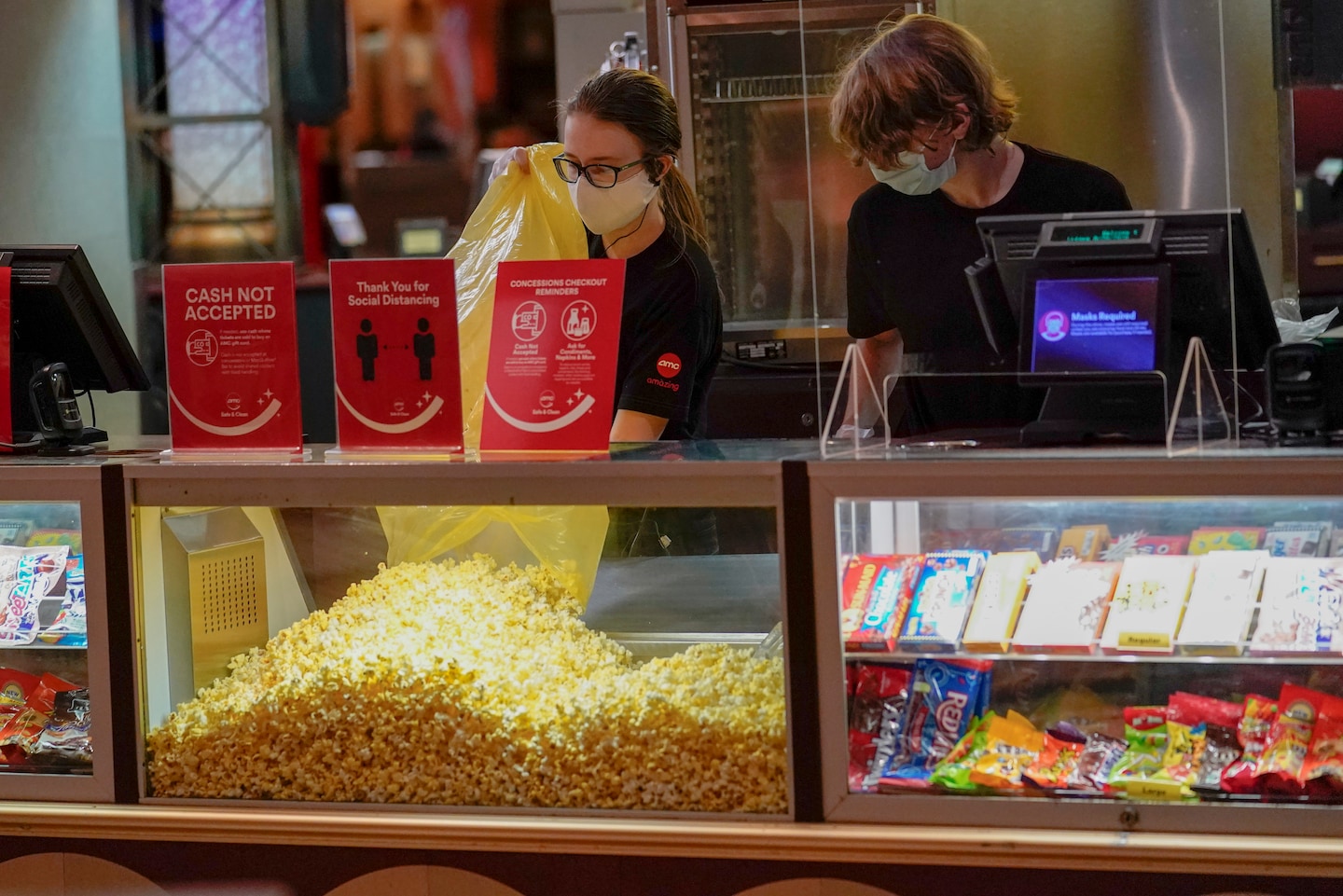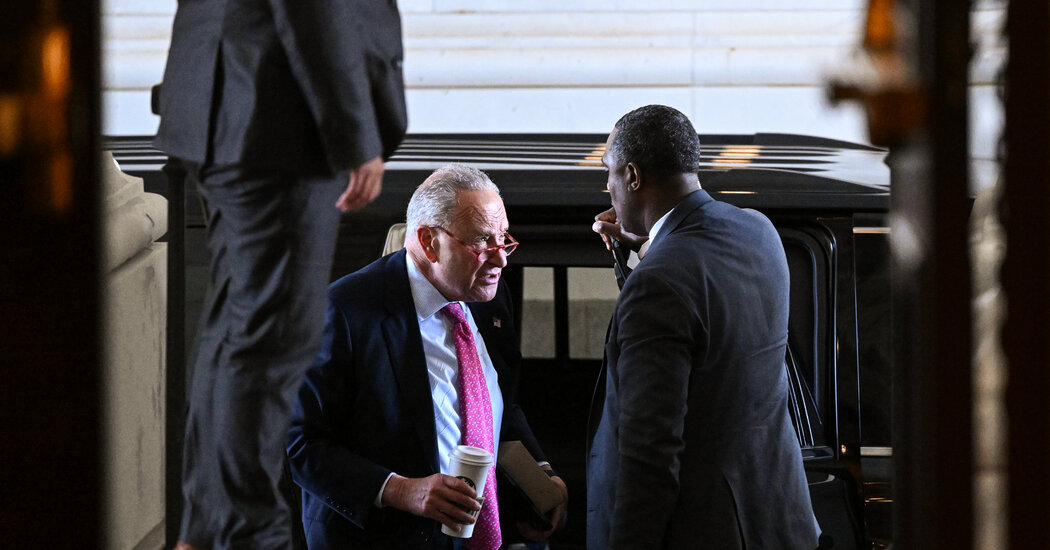As movie theaters reopen nationwide, some employees are reluctant to return: ‘They really are putting money above people’s lives’
But our current reality has become a disaster movie of its own, the world’s harshness intruding upon even our most beloved spaces. Though theaters of all sizes have announced new safety measures to prevent the spread of the novel coronavirus, many hesitate to burst through those double doors. Several film critics, for instance, cited health risks as the reason they wouldn’t review “The New Mutants” or “Tenet,” the Christopher Nolan thriller driving most of the conversation over whether it’s a good idea to sit in an indoor space with strangers for an extended period of time. (For what it’s worth, epidemiologists have said it probably isn’t.)
And so, the conversation goes: Would you risk your life to go to the movies?
Not everyone has a choice. Even if the general public doesn’t return to a pre-pandemic rate of moviegoing, for as long as venues are open, their staffs must report to work. The Washington Post spoke with more than a dozen movie theater employees about the concerns they have as cinemas reopen across the country. Most said they understand the economic pressures of the situation — especially those furloughed — but some question whether it’s worth gambling everyone’s well-being. Many doubt the feasibility of safety measures.
“I don’t see how anyone sees this as realistic,” said Hilary Strohschein, who has worked in the theater business for 17 years. “It’s dangerous for the customer, it’s dangerous for the employee. All these people making the decisions to open theaters are not the ones who are going to have to work there.”
In June, chief executive Adam Aron told Variety that AMC Theatres, the largest movie theater chain in the United States, would not mandate masks when the time came for theaters to reopen because they “did not want to be drawn into a political controversy.” Naturally, the statement proved controversial. The company reversed course the next day after backlash from the public and criticism from competitors.
Companies have since become more cautious in public, devoting Web pages to guidelines such as limiting seating to below 50 percent of capacity, suspending drink and popcorn refills, mandating masks and, in some cases, installing special filters in their HVAC systems.
The National Association of Theatre Owners (NATO) last month distributed an eight-page safety document prepared with guidance from an epidemiologist, the World Health Organization, the Centers for Disease Control and Prevention and the Occupational Safety and Health Administration, according to IndieWire. (IndieWire also noted that NATO doesn’t have the ability to enforce the guidelines.)
But employees of chains across the country expressed doubts about whether these new workplace standards would be met everywhere. Some were given only a few days to prepare to return to work, where they would have to contend with twice as many responsibilities and a fraction of the staff. Employees of AMC and Regal Cinemas pointed to understaffing as a major concern.
A team leader at a Regal theater in Florida, who spoke on the condition of anonymity out of fear of losing their job, said that on any given shift, they are joined by only a few other employees. One or two ushers are tasked with making sure guests wear masks, ensuring that the bathrooms are clean, wiping down game machines in the arcade, sanitizing handles, cleaning theaters between showings and emptying the trash. Another Regal employee, who for the same reason spoke on the condition of anonymity, said that although workers are adequately protected from customers and vice versa, there aren’t enough social-distancing measures in place to protect employees from one another.
The team leader added that the topic of covid-19 is divisive. Some of the managers they know, who are supposed to help enforce rules such as the mask policy, believe the pandemic is a hoax.
In response to these concerns, Regal spokesman Richard Grover stated that the company has committed to NATO’s CinemaSafe program and developed “an updated operations manual detailing all of our new health and safety procedures as well as a mandatory online training course” for employees. In a separate statement, AMC spokesman Ryan Noonan said that theaters, which are staffed based on projected attendance, are “being staffed at a higher-than-normal rate.”
Even for those with cooperative colleagues, some worries still plague service workers of all kinds. In lieu of the usual horror flicks, this summer brought about viral videos of “Karens” throwing fits over mask policies everywhere from Trader Joe’s to a local bagel shop. How long will an usher have to interact with a stubborn customer before getting the okay to show them out? How difficult will it be to enforce mask-wearing in a dark theater, when it’s already hard enough to get people to silence their cellphones?
Lower-level workers also tend to skew young. Sean Marek, a 21-year-old employee of Celebration Cinema in Grand Rapids, Mich., has heard stories about theaters that haven’t enforced safety measures as promised and, as a manager, finds it disheartening. But he said it also seems somewhat inevitable when you consider that a lot of the entry-level jobs are filled by high school students or recent graduates.
“Movie theaters aren’t exactly an essential business,” Marek continued. “Obviously I’m sure this is hurting them financially, and I understand wanting to reopen, but I’m just worried because the theater business is for the most part a minimum-wage job, and that doesn’t lend itself to giving a bunch of cleaning guidelines and having to do all this extra stuff so we can all stay safe and so everyone can stay safe.”
Low pay is a point of contention at workplaces including the Alamo Drafthouse Cinema chain, which has previously faced accusations of improper compensation and will now pay concierges at reopened Texas locations $2.13 an hour before tips. Several employees told The Washington Post that the company rushed theater reopenings and, in some cases, didn’t notify staff of a reopening date until after posting about it publicly on social media.
An Alamo Drafthouse spokesperson said that this was an oversight but that the company had otherwise maintained steady communication with current and furloughed employees throughout closures. The representative described the tipped concierge position’s base salary as a service-industry standard.
The least companies could do is provide hazard pay, according to Isabella, a 23-year-old employee of a midsize theater in Memphis who spoke on the condition of partial anonymity out of fear of losing her job. She contracted the flu last year, presumably from “all of the people that go to see movies sick” and leave their used napkins and tissues in the drink holders for employees to pick up.
“When you’re in a job where you don’t really have health insurance or any kind of net to fall back on, if you get sick and you’re getting in the hospital for, like, who knows how long with the coronavirus,” Isabella said, “[it] could get you fired from your job. It’s definitely a worry, going back in that environment.”
In some parts of the country, theaters reopened months ago. Noah Rubin, the 25-year-old general manager of a Golden Ticket Cinemas location in Butte, Mont., said his small venue showed older movies for a bit over the summer and, when it didn’t, sold popcorn curbside. Butte hasn’t been hit as badly as the larger cities where his friends’ theaters have remained closed, he said. “At least here, no one was worried.”
Rubin’s theater worked with the local health department to figure out how to accommodate guests for two or more hours at a time, he added. One of his concerns now is whether there will actually be new releases to safely screen for guests, given that studios have gone back-and-forth on the matter.
“Part of the issue of Hollywood is, to combat piracy and have integrated finances, they don’t want to release something in Montana and not release it elsewhere,” Rubin said. “But with the current situation, if they want to keep in business and keep both the theaters happy and keep making the money they want to make, they’ll have to come up with that decision.”
On the flip side, new releases also pose a dilemma to theaters that haven’t yet opened — especially in cities like Boston, where an influx of college students returning for the fall semester could lead to a surge in coronavirus cases. Katherine Tallman, executive director of the independent Coolidge Corner Theatre in neighboring Brookline, Mass., spent a weekend racking her brain over how to handle “Tenet.”
The Coolidge has done some private auditorium rentals, abiding by the state guideline of limiting indoor gatherings to 25 people or fewer. But a new release would require a grander plan. After weighing the costs of reopening against the revenue generated from a downsized customer base, Tallman shut it all down.
“We could decide to go through with this and then have the guidelines come in and have us close again — which would be fine, but why go through with that?” she said. “Why don’t we just stop and say we’re not going to open until it seems safe to open? And life got a lot easier after that.”
Thanks to donations and a loan from the federal government’s Payment Protection Program — designed to help small businesses continue paying workers — the Coolidge can afford to remain closed. But independent theaters without a safety net face greater pressure to reopen, sometimes to the concern of employees.
Jake Weisman, 33, recently left his job as an assistant general manager at an independent theater in Chicago, where he worked for six years. He said he understands why the owner chose to reopen, but he “just couldn’t roll with it.” Theaters make the bulk of their money off concessions, a relatively risky purchase now that eating requires guests to take their masks off indoors. It might be all right for now, with customers slow to return and theaters rather empty. But, Weisman wondered, “What happens when ‘Wonder Woman’ comes out and everyone has decided it’s safe, and they actually start selling out shows?”
Weisman left the theater alongside his boss, 34-year-old general manager Strohschein, who worked there for eight years. Customer service jobs require a stomach for unpleasant tasks, she said, recalling an incident many years ago that involved human feces. She has seen and dealt with a lot in her time.
But a virus of this magnitude is unprecedented.
“Nothing has really changed since March except that there are some safety procedures that people keep saying are going to keep people safe, but they don’t know that for certain,” Strohschein said. “And so they’re lying. They’re lying because it’s a desperate situation for a lot of these people. They’re losing a lot of money right now, all these theaters being closed. … But they really are putting money above people’s lives.”



